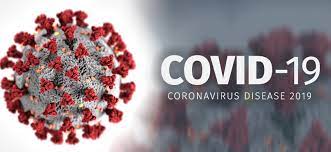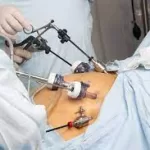In a significant move, the Union Government has reportedly engaged the Indian Institute of Management (IIM) Ahmedabad to revamp the functioning of the National Medical Commission (NMC). This development has sparked reactions from the medical fraternity, with many expressing hope for substantial reforms in the regulatory body overseeing medical education and practice in India.
According to a report by Mint, a senior faculty member of IIM Ahmedabad has begun discussions with the four major boards under NMC—the Undergraduate Medical Education Board (UGMEB), the Postgraduate Medical Education Board (PGMEB), the Ethics and Medical Registration Board (EMRB), and the Medical Assessment Rating Board (MARB). The goal is to identify challenges in NMC’s daily operations and recommend measures to address these shortcomings.
Medical Community Welcomes Reform
The medical community has responded positively to the move, acknowledging the need for systemic improvements in NMC’s functioning.
“The NMC, as it stands currently, is struggling to efficiently regulate the healthcare system in India. This is particularly evident in the manner medical entrance exams are conducted,” remarked Dr. Dhruv Chauhan, a medical activist.
Over the past year, the NMC has faced scrutiny due to controversies surrounding the National Eligibility-cum-Entrance Test (NEET). The undergraduate version (NEET-UG) was marred by allegations of a paper leak, leading to widespread protests, while the postgraduate version (NEET-PG) was criticized for its lack of transparency.
Dr. Chauhan further alleged that the NMC has been largely ineffective in addressing these concerns. “The commission has become increasingly inaccessible to medical students. Their grievance redressal mechanisms are practically non-functional, and even their helplines are unreliable,” he stated. He expressed optimism that IIM Ahmedabad’s recommendations could improve student accessibility to NMC.
Impact on Medical Education and Healthcare
Experts believe that a well-executed revamp could have far-reaching effects on India’s healthcare sector. Dr. Dilip Bhanushali, National President of the Indian Medical Association (IMA), emphasized that reforming the NMC could help address staffing shortages in medical colleges and teaching hospitals.
“The government continues to establish new hospitals, but fails to adequately hire faculty. Without educators, how can these institutions function effectively?” he questioned. While welcoming changes to the NMC, Dr. Bhanushali cautioned that reforms should be strategic and implemented with transparency.
“Any new policies must focus on the long-term development of our healthcare system. Constantly changing regulations only lead to confusion,” he added.
Governance and Structural Challenges
The push for NMC reform comes amid reports of vacancies across its four boards. Since September 2024, the commission has lacked full-time and part-time members. According to The Telegraph, only the PGMEB currently has a functioning president, while the leadership positions in the remaining boards remain unoccupied.
Responses to Right to Information (RTI) requests filed with the Union Ministry of Health & Family Welfare further revealed that key posts, including those of the NMC Secretary, three board presidents, and other full-time and part-time members, are vacant.
While officials have confirmed that discussions on the revamp are underway, the proposal is yet to be finalized.
Disclaimer: This article is based on reports from external sources. The information provided is subject to change as further developments unfold.











